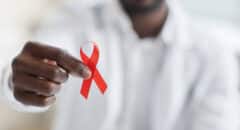
(BlackDoctor.org) — AIDS experts at Johns Hopkins say they are surprised and dismayed by results of their latest multicenter study showing that the yearly number of new cases of HIV infection among black women in Baltimore and other cities is five times higher than previously thought. The data show that infection rates for HIV, the virus that causes AIDS, among this population are much higher than the overall incidence rates in the United States for African-American adolescents and African-American women.
The data come from an ongoing, larger series of studies supported by the HIV Prevention Trials Network, and reflect testing and analysis of at-risk women in six urban areas in the northeastern and southeastern United States hardest hit by the global AIDS epidemic. The so-called “hotspots” are Baltimore; Atlanta; Raleigh-Durham, N.C.; Washington, D.C.; Newark, N.J.; and New York City. Researchers plan to present their findings March 8 at the 19th annual Conference on Retroviruses and Opportunistic Infections in Seattle.
Specifically, the team found that among 2,099 women ages 18 to 44, 88 percent of whom were black, 1.5 percent (32 women) tested positive at the outset of the study, even though they all thought they were negative. Among those who initially tested negative for HIV, the rate of new infections was 0.24 percent within a year after joining the study. Some 215 study participants came from Baltimore.
Experts say this rate of infection, or seroconversion, is five times previous estimates from the U.S. Centers for Disease Control and Prevention overall for African-American women.
“This study clearly shows that the HIV epidemic is not over, especially in urban areas of the United States, like Baltimore, where HIV and poverty are more common, and sexually active African-American men and women are especially susceptible to infection,” says principal investigator for the Baltimore portion of the study, Charles Flexner, M.D., a clinical pharmacologist and infectious disease expert at Johns Hopkins.
“We, as care providers and policy makers, have our job cut out for us in devising HIV prevention programs targeted to sexually active men and women in Baltimore and other cities,” says Flexner. He says prevention tactics should include more counseling about sexually transmitted infections, distribution of condoms, and intensive education about safer sex practices. Flexner is a professor at the Johns Hopkins University School of Medicine and the university’s Bloomberg School of Public Health.
In Baltimore, the study conducted from May 2009 to July 2010 asked participating women about their safe sex practices and other health issues, then asked them to come to The Johns Hopkins Hospital for HIV testing at no cost. Those who tested positive were offered counseling and treatment, and followed for the duration of the study.
“While we have always known that African-Americans had a higher risk of HIV infection than other American racial groups, this study confirms it and underscores the severity of the national and local problem, especially in cities,” says study site leader was co-investigator Anne Rompalo, M.D., Sc.M., an infectious disease specialist and professor at Johns Hopkins.
Rompalo says women of all races account for a quarter of the 50,000 new HIV infections each year in the United States, which adds to the more than 1 million men and women already known to have tested positive. Sixty-six percent of the women newly infected each year are black, even though African-American women represent only 14 percent of the U.S. female population. The national age-adjusted death rate for black women in the United States is nearly 15 times higher than that observed for HIV-infected white women.
The new study, formally known as HPTN 064 Women’s Seroincidence Study, ended in February 2011 and was funded by the U.S. National Institute of Allergy and Infectious Diseases (NIAID), part of the U.S. National Institutes of Health.









